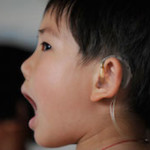Each January through May, SPIN follows the progress of the Hawaii State Legislature to report important legislation and funding to benefit children with disabilities. In doing so, we hope to encourage families to get involved in the process. Sometimes a few heart felt testimonies make a difference in whether a bill is passed or put to rest.
Here is a quick wrap-up on funding and laws passed this session. Of coarse, we have until early June to see if the Governor plans to veto any bills that have passed.
 Funded Requests
Funded Requests
There were some groups and causes that received big funding this session, including the following:
- A whopping $100 million to the Department of Education to cool or air condition up to 1000 classrooms across the state.
- $16,537,791 in additional Weighted Student Formula monies to help public schools address needed supports.
- Almost $7 million in additional funding for public school transportation, including bus contracts for students with disabilities.
- $10 million in preschool subsidies through the Open Doors program to enable almost 2,000 at-risk preschoolers to attend private preschools. $460,000 for the Department of Education to provide training and prepare for the implementation of the Restraints and Seclusion Bill.
- $12 million to help find housing for homeless families.
 Unfunded Requests
Unfunded Requests
A number of state departments are wondering how to pay for needed services for the coming year.
- For the DOE, a $10 million shortfall for services for students whose second language is English and a $3 million shortfall for skilled nursing services.
- For the Developmental Disabilities Division, $2.8 million in matching monies for the DD/ID Waiver.
- In Department of Human Services budget for Medicaid, $6 million+ for early diagnosis and treatment of autism in keiki through age 6.
New Legislation Passed in 2016
 TEMPORARY EXEMPTION FROM ABA LICENSING
TEMPORARY EXEMPTION FROM ABA LICENSING
SB1311 acknowledges the need to have “direct support workers” who are providing autism treatment services to students with disabilities as part of an IEP to meet the licensing requirements established last year in Act 199. However, given that the current workforce is inadequate to meet these needs, legislators gave the Department of Education until January 1, 2019 to ensure its teachers or paraprofessionals who directly implement autism intervention or assessment plans under supervision have time to become credentialed as a Registered Behavioral Technician.
 DEFINITION OF DEVELOPMENTAL DISABILITIES
DEFINITION OF DEVELOPMENTAL DISABILITIES
This law (Act 032) extends eligibility for services from the Developmental Disabilities Division (case management, waiver services, etc.) to children from birth to age nine who have substantial developmental delay or specific congenital or acquired condition, and who are likely to meet the strict criteria for developmental disabilities (for example, substantial delays in 3 or more life activities) later in life. The result is that infants and young children can receive early intervention and supports that may help lessen the extent of their disability.
 LANGUAGE MILESTONES FOR DEAF STUDENTS
LANGUAGE MILESTONES FOR DEAF STUDENTS
The purpose of SB2476 is to address the very real problem that many deaf, hard of hearing and deaf-blind children between the ages of 0-5 have received very little or no language instruction. This bill will enhance language development for these keiki and prepare them to be ready for kindergarten. The Executive Office of Early Learning, the Department of Health and the Department of Education will form a working group with parents, teachers and individuals who are deaf, hard of hearing or deaf-blind to discuss issues and make recommendations to the Legislature.
 PHYSICAL EXAMS FOR SEVENTH GRADERS
PHYSICAL EXAMS FOR SEVENTH GRADERS
Currently, physical exams are only required when students start school, usually in kindergarten. Starting with the 2017-18 school year, SB 2387 will require that students entering seventh grade at a public school also show proof of a recent physical examination. If students are not able to complete the exam before December 31st of their 7th grade year, the Department of Health will step in to provide information to their parents and guardians about healthy lifestyles and how to obtain health insurance. The bill also aims to prevent or address childhood obesity by ensuring students see a health care provider.




